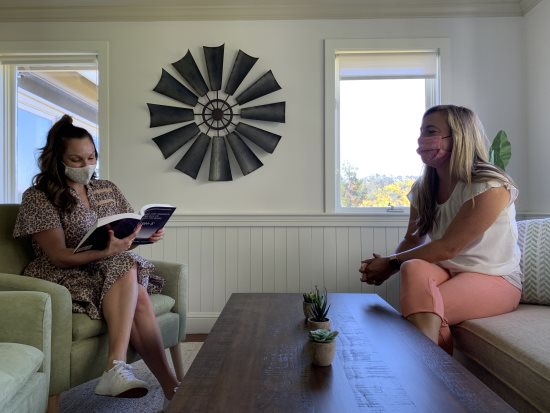
| ||||||
Residents from the Happy Valley neighborhood nestled on a narrow road expressed concerns about the adolescent mental health residential treatment home on Panorama Drive during the June 22 city council meeting's public comment portion. Concerns predominantly focused on traffic impacts, parking, and emergency services access. Worries were also expressed over housing troubled teens only 400 feet away from the children at Happy Valley Elementary School.
Under state law, residential group homes for six individuals or less must be treated as single-family residential use, with the same zoning standards applied for construction, parking, use, etc. They also need to abide by the same regulations that would apply to any other residence or resident, but the city cannot call these centers out and regulate differently as a specific type of use.
Judy Sylvia, chief business development officer for Evolve, responded at the June meeting that the center is fully compliant with the law as a residential treatment facility for 12- to 17-year-old children, with a maximum of six at a time. She added that the 11 trips anticipated generated by staff were negligible compared to the thousands of cars passing the school every day. She confirmed that staff shift hours would not conflict with school arrival and departure times. Sylvia also indicated that the property chosen had more than enough on-site parking for all.
According to Sylvia, teens accepted at the center are admitted providing they have had a level of acceptance of the treatment, and violent teens would not be admitted. She stressed that the center is a place for young people struggling with anxiety, depression or substance abuse, or who may have lost their will to live to seek help. The center focuses on treatment models like Dialectical Behavior Therapy and Cognitive Behavior Therapy as primary modalities in the individual, family and group therapy sessions. According to Evolve, DBT is shown by research to reduce self-harming and suicidal behaviors in teens. Yael Klein for Evolve said that the services also incorporate psychiatry sessions, addiction recovery support, and experiential therapies like music therapy, yoga, art therapy, hiking, equine-assisted therapy and physical fitness.
Linda Mackinson, a Lamorinda resident and psychology social worker, expressed satisfaction that such a center would open locally. She said that there are many kids in Lamorinda, as in other communities, who suffer from mental health issues and that having a facility in their own community was needed.
At the same time, a second company Monte Nido has also purchased a home on Ivanhoe Avenue to create an eating disorder treatment center. The company indicated that it will open as soon as the state gives it its license and will accommodate up to 10 clients at a time. Monte Nido was founded 24 years ago by Carolyn Costin with a vision to provide a homelike setting conducive to healing for those seeking eating disorder treatment. Monte Nido offers residential and day treatment options to clients at any stage in the recovery process from an eating disorder such as bulimia, anorexia, binge eating disorder and/or exercise dependency, as well as co-occurring substance use, trauma, and psychiatric presentations. According to Nierah Jinwright, handling communications for Monte Nido, the underlying philosophy of the centers is a belief in every individual's ability to achieve full recovery through holistic treatment that encompasses clinical, medical and nutritional elements.
Cities and counties can restrict the location of facilities housing seven or more clients by requiring use permits, adopting special parking and other standards for these homes, or prohibiting large facilities in certain zoning districts. Lafayette city attorney Mala Subramanian spoke during closed session on July 13 about anticipated litigation, with the summary provided noting that she spoke with Patricia Curtin, legal counsel for Monte Nido. During this call, Curtin informed the Lafayette counsel that if the city attempts to place restrictions on the Monte Nido project her client will sue the city. Curtin asserted that these facilities are supportive housing and must be treated the same as a single-family residential use.
At the end of the June 22 council meeting Mayor Mike Anderson asked that the topic be brought back to council for discussion. Lafayette staff did not respond to questions about how and when this topic would be addressed, indicating that "due to the sensitivity of this matter, (staff is) unable to comment at this time."
Reach the reporter at:
